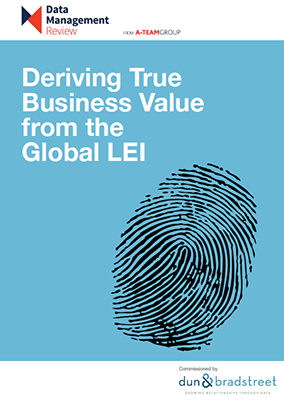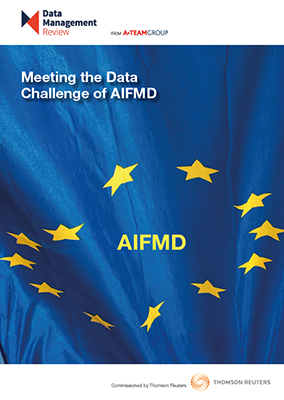RegTech Insight White Paper
Harmonising the Approach to Regulatory Compliance
Regulatory compliance is key to financial institutions, but it can be costly and difficult to achieve in an environment where new regulations are constantly on the horizon and must be implemented efficiently and effectively. This White Paper, sponsored by Thomson Reuters and based on a survey of close to 70 senior data managers, discusses how...
Deriving True Business Value from the Global LEI
The Legal Entity Identifier (LEI) – the free-to-use entity identifier – has established itself as a viable standard for helping financial institutions identify unique business entities that are parties to financial transactions. But it’s widely accepted to have its limitations. In particular, a lack of standardization and ability to link to associated data sets is...
Entity Data Quality: New Approaches and the Four Categories of Data Quality Management
Legal entity data is critical to data strategy, business decisions and regulatory compliance, but it can be a challenge to ensure the data is accurate and reliable as the entity universe is large, millions of attributes change every year and inconsistent codes and symbologies identifying entities, corporate hierarchies and ultimate beneficial owners must be managed....
Meeting the Data Challenge of AIFMD
The Alternative Investment Fund Management Directive (AIFMD) came into effect in 2013. Most financial institutions within its scope, particularly hedge funds and firms that service those funds, have since completed the majority of work required to meet their obligations under the regulation, but some thorny data management issues remain. Hedge funds are challenged by the...
Navigating BCBS 239 and the New Stress-Testing Regime
Rigorous stress testing – and emerging regulations like Basel’s BCBS 239 – mean that the risk and finance functions can no longer act in isolation. Regulators are increasingly seeking a true, holistic view of risk. To deliver on the new requirement, banks need to reinvent their infrastructures and operating models, making sure all elements of...
Tracking bonds for Solvency II’s Matching Adjustment
How are you tracking bonds that are eligible for Solvency II’s Matching Adjustment (MA)? With the January 2016 deadline looming, insurance companies and the asset managers that service them need to be able to identify eligible assets in their portfolio. But there’s no single list, rather a set of criteria to be followed, resulting in...
A Utility Approach for Operational Process Improvement
Data management is a high-cost, no-margin activity for financial institutions across the board. Business requirements and regulatory pressure demand more depth of processing and breadth of reporting than ever before. At the same time, high quality data sourcing, validation and enrichment are essential to achieving operational optimization. Yet most firms are reluctant to increase investment...
MiFID II: Practical Considerations for Gainful Compliance
The EU’s Markets in Financial Instruments Directive (MiFID) II – which applies from January 2018 – aims to extend the market transparency introduced by its predecessor regulation to new areas of the marketplace. In many cases, MiFID II will be more granular, more prescriptive and more onerous than MiFID I, raising business and technology challenges...
Trade Europe Now
This paper has been written to provide a guide to effective electronic trading in Europe. It offers an overview of current state of play in the European market as well as dispelling myths surrounding MIFID II. It examines what elements are needed to effectively trade Europe, specifically looking at selecting the right physical point of...
Getting to Grips with the Challenge of Beneficial Ownership
Understanding beneficial ownership of an entity – a corporation or a fund – has emerged as a key element of many financial institutions’ compliance activities. A raft of relatively new regulations – ranging from the US Dodd-Frank Act through to Russian sanctions – require firms to understand who owns the entities they do business with,...











